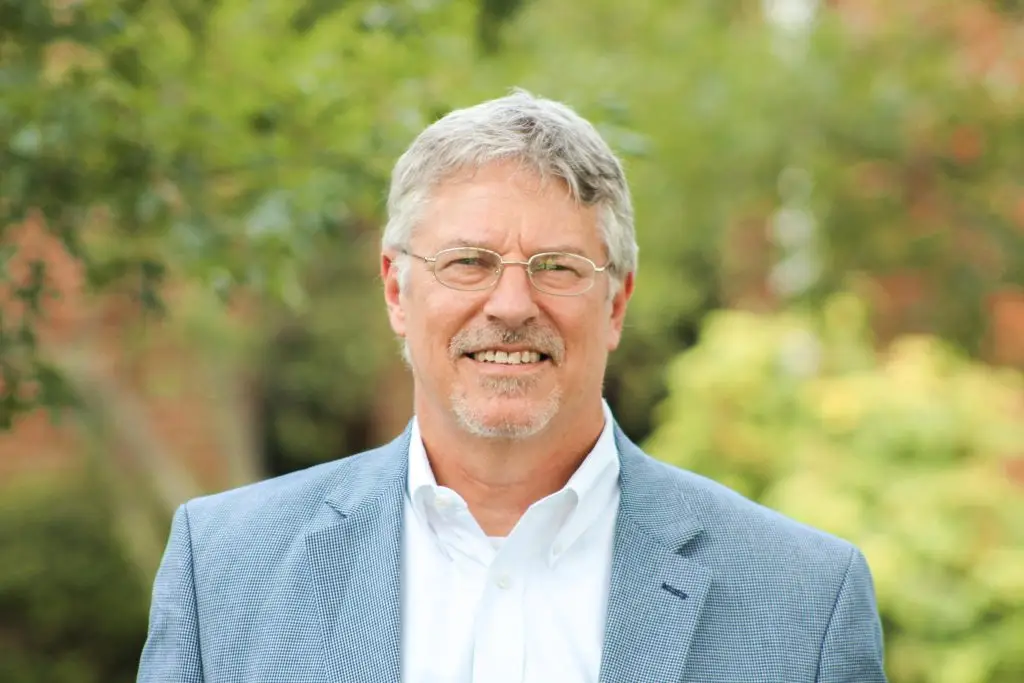I am pleased to welcome a distinguished guest writer for our March Free to Teach column. Dr. Clint Elliott is not only a member of the Christian Educators Board of Directors, but he is also an ordained pastor and attorney who serves as Executive Director and General Counsel for the Justice Defense Foundation of Kentucky. I know you will enjoy this encouraging contribution from Dr. Elliott!
Blessings,
David Schmus
I recently met with a pastor who leads a wonderful outreach ministry to local public schools. He recognizes that God is at work in our public schools through Christian educators, often in partnership with local churches. I hope you will find encouragement in his article and discuss it with your local pastor and missions team. As a board member of Christian Educators, I rejoice when I see how God continues to work in our schools and connect local churches for ministry on campus.
As a Christian attorney, I also find great encouragement in a recent course correction in case law that is enhancing legal protections for Christian educators in the mission field of our public schools. Prior court rulings had placed overly restrictive limits on faith expression by school staff, putting greater pressure on educators of faith to hide their identities to keep their jobs.
However, starting in 2022, the United States Supreme Court began a course correction by restoring the historical and traditional view of the First Amendment in a way that unequivocally shores up protections for Christian educators. In Kennedy v. Bremerton School District, the Court acknowledged the right of a Christian educator to pray on campus even during contract time, and even when others object. Significantly, this decision provides needed guidance for Christian public school educators beyond the narrow context of the case by affirming the following: “that the First Amendment doubly protects religious speech is no accident. It is a natural outgrowth of the framers’ distrust of government attempts to regulate religion and suppress dissent” (p. 39). Restoring this right view of the First Amendment provides assurance that Christian educators have the right to engage in religious expression on campus, share religious materials with other employees, and meet with employees for prayer and religious studies.
Building on this course correction, the Supreme Court also responded that same year to a derailed notion of expressive individualism by calling the law back to “ordered liberty.” In Dobbs v. Jackson Women’s Health Organization, the Court noted previous legal opinions that supported an individual’s right to invent their own meaning about life and the universe and thus create their own identity. However, in Dobbs, the Court declared that imposing such beliefs on others as a matter of right “is certainly not ‘ordered liberty.’ Ordered liberty sets limits and defines the boundary between competing interests” (p. 31). While this decision that overturned Roe v. Wade may not seem directly relevant to public school educators, I believe it foretells further course correction as a legal stopgap protecting Christian educators against forced compliance with gender ideology in our schools.
As a result of such course corrections from the high court, we now see lower courts acknowledging renewed protections for Christian educators in public schools. For example, last year, in response to another Supreme Court decision, the Seventh Circuit Court of Appeals vacated a previous decision against an Indiana teacher who opposed false pronouns. In vacating that decision, the court ordered the lower court to reconsider the rights of the teacher in light of his biblical view of gender.
Also in 2023, we saw the Virginia Supreme Court affirm the right of a Christian educator to resist compelled speech relating to gender pronouns. Although this is a state court decision, this victory for high school French teacher Peter Vlaming represents an important decision nationally because the court repeatedly referenced U.S. Supreme Court precedent in support of the teacher. In that regard, the Virginia court recognized that religious liberty, as a natural law right, stands above lesser man-made laws. Thus, the historical and traditional application of the First Amendment must prevail when raised against new notions of gender. The court succinctly summarized what this means for Christian public school educators in relation to gender ideology as follows:
- “In an open, pluralistic, self-governing society, the expression of an idea [i.e., a Christian worldview] cannot be suppressed simply because some find it offensive, insulting, or even wounding.”
- The government “is not free to interfere with speech for no better reason than promoting an approved message or discouraging a disfavored one, however enlightened either purpose may strike the government.”
- The “government may neither compel affirmation of a repugnant belief, nor penalize or discriminate against individuals or groups because they hold religious views abhorrent to the authorities.”
- “The need to reinforce these principles ‘is nowhere more vital than in the community of American schools.’”
So be encouraged as we enjoy a return to ordered liberty in public schools based on the historical and traditional view of the First Amendment. As we enjoy this course correction, and as we see the church increasingly awaken to ministry opportunities at public schools, let me encourage you to hang in there and not grow weary of doing good, knowing that your labor is not in vain!
As frontline missionaries onsite with insight, you have a unique opportunity to fulfill Jesus’ calling as Kingdom salt and light. As you speak words seasoned with salt and as you shine the light of Christ on campus, remember that we’re here for you, praying for you, and quick to come alongside you to protect your right to live as ambassadors for Christ on your mission field.
¹p. 23, citing Fulton v. Philadelphia, 141 S.Ct. 1868, 1924 (2021).
²p. 23-24, citing Hurley v. Irish-Am Gay, Lesbian & Bisexual Grp of Bos., 515 U.S. 557, 579 (1995).
³p. 24, citing Sherbert v Verner, 374 U.S. 398, 402 (1963).

Clint has more than thirty years’ experience as an attorney practicing in a variety of areas, including employment law, religious liberties, and First Amendment rights. Clint also is an ordained pastor and has served in pastoral ministry at several local churches, but currently serves the larger church through equipping and discipleship ministries and teaching. Clint also serves as the Executive Director and General Counsel for the Justice Defense Foundation of Kentucky, a nonprofit that exists to promote, pursue, and defend biblical justice in the marketplace and in public schools. Clint is a member of the Christian Legal Society, serves as an Alliance Defending Freedom allied attorney, and serves on the Board of Christian Educators Association International. He recently completed his PhD doctoral studies researching transformational leadership among Christian public school educators.
Free to Teach is written to inform, encourage, and inspire Christian educators serving in our public schools. It should not be construed as legal advice provided by an attorney.


